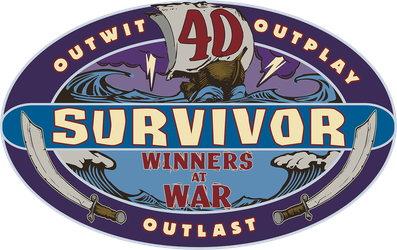
A ham-fisted analogy that I will not give up, but I will painstakingly relate to being a writer, existing in the publishing world, and/or life.
- Learn how to make fire
Not only is fire-making a good life skill, it’s preposterous that the show has been on for 40 seasons and yet, without fail, contestants show up without knowing even the basic principle of how to use magnesium.
By this, I mean give yourself an advantage. Learn as much about publishing—the industry and the process—as you can before you start sending out query letters and trying to nab an agent. Admittedly, not everyone has the time or resources to do this! But, if you are able, give yourself this gift. In the game of Survivor, that’s generally building a shelter, fishing, eating something gross as a challenge, swimming, but in publishing that might be familiarizing yourself with agents that represent the genre/category you’re writing in, what the generally accepted word count is, how to write a query letter.
Prepare yourself the best that you are able before you set foot on that island. - Get to know your teammates
In later seasons of Survivor, something called Exile Island is introduced to the game. It’s exactly what it sounds like, an island that unlucky contestants are banished to. When you’re exiled, you have to do everything yourself: collect firewood, boil water, fish, etc. It’s not a great place to be, because you enter the next challenge weaker physically and you’ve potentially missed some big moves or crucial gossip back at camp.
I cannot stress enough how helpful it is to join the writing community. Learn who the other players are (agents, editors, etc.). Find a critique group or trusted beta readers. Join local or national or international writing organizations. Become involved. Create your own community. - Build alliances
Alliances emerge and evolve all the time on Survivor. It’s necessary, as people are voted off, tribes mix, or merges occur. Alliances come in all shapes and sizes, with all sorts of different dynamics. What’s important is building a relationship with a person or people you can trust.
The same is true in publishing. Once you’re familiar with your teammates, form your alliance. Find those friends who are at the same spot in your publishing journeys. Build relationships with those who are further along in the journey, so that they can offer advice and feedback. Help those who haven’t made it as far yet, offer a hand up, save them from drowning during a team challenge. What matters is having confidantes you can ask questions, keeping some thoughts offline, and having others to commiserate and/or celebrate with. - Respect island politics
This is basically just Maslow’s Hierarchy of needs: sleep, food, water. Do what you can to help provide, give more than you take, and don’t whine. As annoying as it is, if you find yourself doing all the work while everyone around you refuses to contribute, you cannot make a fuss about it.(Related: make yourself necessary around camp, but not *too* necessary)
Listen, publishing is full of politics from the literal (e.g. book deals for politicians) to, well, other types of literal (#PublishingPaidMe, for example). Obviously, this lesson doesn’t directly translate, as publishing is still pretty abysmal at hiring, retaining, contracting, or otherwise working with most marginalized folks. Instead, I’ll say that you should be aware of your privilege. Don’t just be aware of it, though; if you are in a position to, use it. - Keep your secret idol a gd secret
In later seasons of Survivor, a new element is added to the game: personal Immunity Idols. Usually hidden near camp, they can be found by putting together the right clues or, sometimes, luck. These idols are important, because they can completely change the game when deployed correctly. Sometimes, a survivor is caught when they find the idol. Sometimes, it’s revealed when other survivors dig through your personal belongings. And sometimes, the player chooses to share the secret. Some secrets, no matter how exciting, are meant to be kept until the time is right.
Publishing is full of secrets. Secret projects. Book deals that might take forever to be announced. Branching out into a new age category or genre and writing under a pen name. It can all be very exciting, but there’s a lot of hurry up and wait in publishing and a lot of sitting on secrets until they don’t even feel that new or shiny anymore. Still, sometimes you gotta keep those secrets until the time is right. - Make bold moves
An underrated aspect of Survivor is how much storytelling is involved. And I don’t just mean how the show has been edited together in post-production, I mean that, when it comes down to it, you need to prove that you deserve to win. Most often, this comes up when finalists are asked what big moves they made in the game. What did they do to prove themselves? What crucial alliances did they form or break? If you’re going to stab someone in the back, sometimes you’ve got to own it.
Don’t downplay what you want or walk it back. It’s okay to be ambitious. Query your “dream agent.” Enter that contest. Submit that short story. Write in a new category or genre. Experiment with story structure. If you want awards, tell your editor. I think something important here is communicating what you want, and not just expecting things to happen. Manifest your own destiny. - Outwit, outplay, outlast
At the end of every season, when it’s down to the final two or three, the finalists get the chance to pitch themselves to the jury about why they should be the one to be named Sole Survivor (and also win a million dollars). There are three main categories that are judged, the same ones that are on every Survivor flag: Outwit, Outplay, Outlast. These are the basic tenets of publishing, too. (Kind of.)
Everyone has different goals for their publishing careers, but it’s important you keep your eyes on the prize, whatever that means to you. In this case, outwit means know what you want. Have an idea of the strategy you’re going to implement. Know how to pitch yourself and your project(s). To outplay, know that you’re going to get knocked down and you’ll have to get back up again. Survivor is an extremely physical game, but in publishing, this means that you’re going to get rejected again and again and again. Know your limits, balance them with what you want, and persevere. Outlast takes that perseverance and kicks it down the field. So much of publishing is a waiting game, and you have to be willing to be patient.



